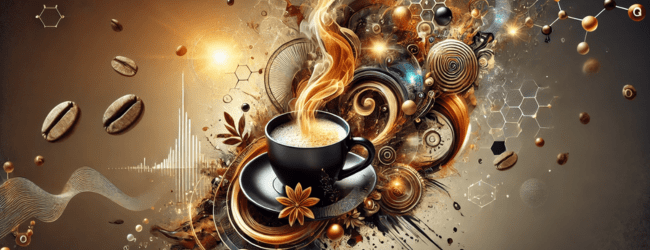
How long does caffeine stay in the blood? The duration of its effects
Share
Caffeine is a natural stimulant whose molecule acts on the central nervous system. It is present in the white powder Sniffy. It is mainly known for its ability to prevent fatigue. Understanding how long caffeine lasts in the bloodstream is crucial to managing its effects throughout the day, in order to adapt sleep patterns and physical performance.
The time it takes for caffeine to be absorbed and eliminated from the bloodstream
How is caffeine absorbed by the body?
Caffeine is rapidly absorbed by the body after ingestion. Once consumed, it passes through the digestive system, reaching the stomach and then the small intestine. At this point, it enters the bloodstream. This absorption process is facilitated by the water- and fat-soluble nature of the caffeine molecule, enabling rapid diffusion throughout the body.
The time needed for caffeine reaches its peak in the bloodstream generally varies between 30 and 120 minutes, depending on various factors such as :
- the quantity consumed,
- type of beverage (espresso, tea, soda)
- individual tolerance.
On the other hand, a person accustomed to consuming caffeine will be able to metabolize the substance more efficiently than someone less used to it.
How does the body eliminate caffeine?
Caffeine is mainly eliminated by the liver, where it is metabolized by specific enzymes housed in this excretory organ. This process breaks down the caffeine, which is then eliminated in the urine.
Its elimination time is between 3 and 7 hours, and must be taken into account to understand caffeine's impact on sleep and energy. This can help you find the perfect balance and avoid fatigue during the day.
Effects and duration of caffeine in the bloodstream
Caffeine acts as a powerful central nervous system stimulant. It blocks adenosine receptors (associated with drowsiness), resulting in increased attention, alertness and cognitive capacity.
It also stimulates the release of adrenalin, enhancing physical performance. This is because it increases heart rate and mobilizes fat as an energy resource in preparation for exertion. Its effects generally appear 15 to 45 minutes after ingestion, peaking around 1 to 2 hours after consumption.
Caffeine has certain undesirable effects, such as insomnia, palpitations and excessive irritability. What's more, excessive consumption can aggravate existing disorders, including hypertension, increased anxiety and digestive problems such as acid reflux or stomach aches. Consuming caffeine in moderation is therefore essential to enjoy its benefits without side effects.
Best practices for using caffeine in energy powders
When consuming caffeine, it's important to bear in mind that its effects vary from one individual to another, depending on genetics and age. In particular, it is not recommended for children and the elderly, who will be more sensitive.
What's more, people on medication may be forbidden to consume certain substances such as caffeine. It would be wise to seek medical advice before consuming caffeine-rich energy powder or any other coffee-based beverage.
For people with no contraindications, the energy powder will enable you to take caffeine in a different way. This method is fast, simple and convenient. It can be swallowed in micro-doses under the tongue for a boost more powerful than an espresso.
Caffeine is also present in Guarana, which is also found in our energy spray and energy gummies.
Caffeine therefore has an average duration of action of 3 to 7 hours in the blood. And will be influenced by personal factors such as age and metabolism. For responsible consumption, adapt doses to your needs and avoid excess.
To avoid coffee, Sniffy provides a quick and easy sublingual energy boost. You'll be able to regain the energy you need to get on with your busy day or evening.
